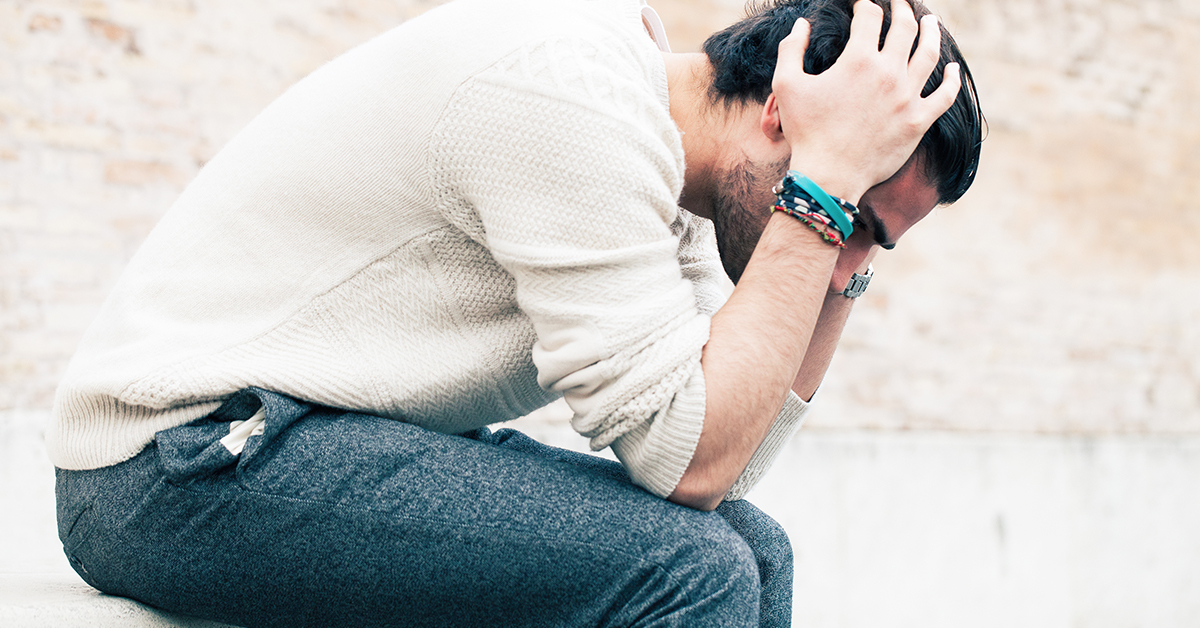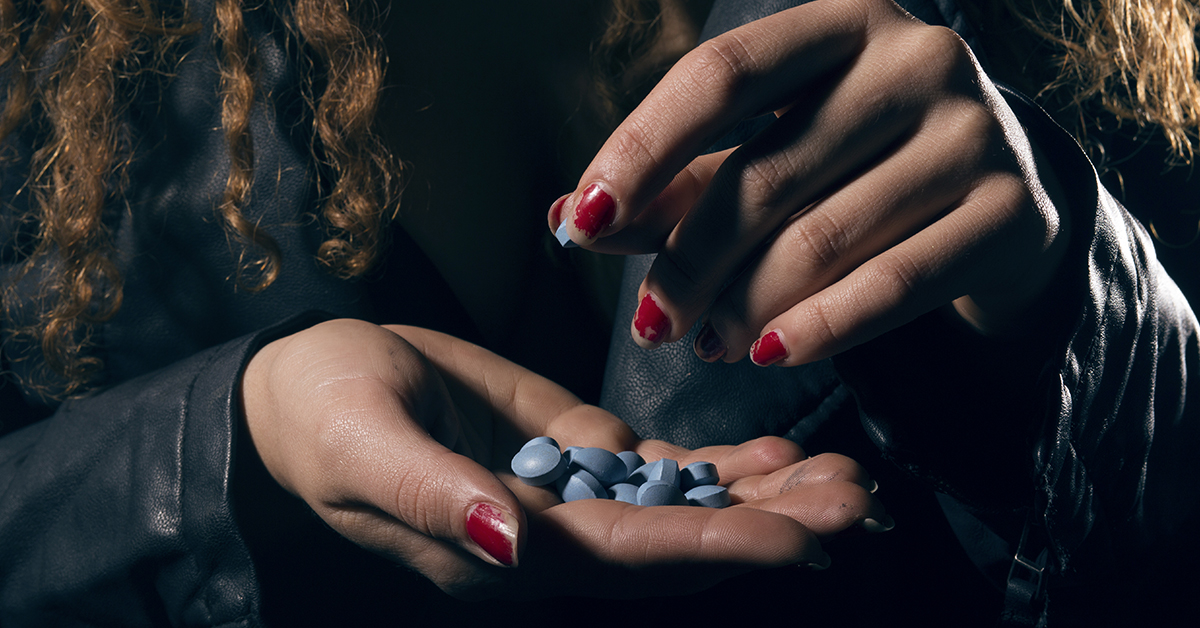
05 Jan Warning Signs of Drug Relapse
Table of Content
The struggle is over. The addiction is beaten. Your loved one has just come back from rehab and hope is on the horizon. Many are the family members and friends who will believe this is the case, but recovery from drug addiction does not end after rehab. In fact, according to the National Institute of Drug Abuse (NIDA) 40%-60% of those who underwent detox and rehab to get sober, relapse. Disheartened? Don’t be. The road to recovery is long and hard and there will be pitfalls, failures and false starts. It’s a process and one that relies on a host of factors—the most important of which will be the addict’s level of commitment to their own recovery. Understanding this while attempting to mitigate the risks of relapse is all we can do to help our loved ones stay the course. But what are the warning signs of drug relapse? How do we identify the subtle hints at a return to former behaviors that the addict will surely attempt to cover-up?

Understanding Relapse
Relapse is easy, recovery is hard, and it will always fall squarely upon the shoulders of the addict as to which road they take. As a parent, family member or friend, it can be immensely difficult to understand the temptations of drugs, especially after watching how hard the addict has recently fought to escape them. But drug detox—the expulsion from the body of the drug itself and a relieving of the addict’s physical dependence upon it—does not magically cure the person of the drug’s malign influence. Drug use and subsequent abuse and addiction are as much cultural as they are physical phenomenon. The fact is that whatever triggered the initial use of the drug will most likely still exist within the addict’s world even after they have been through detox and rehab. These environmental factors—be they friends, a subscribed to subculture, workplace temptations or simple social anxieties—don’t just go away. The world is suffused with them, triggers that non-addicts will never see but will illicit within an addict a titanic urge to use their preferred drug. These, not the physical cravings for the drug, are the root causes of relapse. Avoiding them and preventing a drug relapse is a struggle that can keep loved ones and addicts alike awake all night with worry. But what if they have already succumbed?
Common Behavioral Warning Signs of Relapse
Behavioral warning signs of a drug relapse may seem like they would be obvious, but the addict, shamed by their failure, will usually do their best to cover them up. Depending on the addict’s drug of choice there will be different identifying characteristics (someone under the influence of heroin may be more easily identifiable than someone under the influence of Xanax), however, the following will usually be present in every relapsing addict’s behaviors:
- Isolation: In their effort to keep their renewed drug use a secret, the addict will inevitably seek to isolate themselves from those who know them best or are in a position to respond. Though this may be mistaken for a recovering addict’s desire to focus on themselves and be away from the triggering effects of others, a noted separation from those who never enabled their addiction will be the outlying characteristic. This is due partly to their shame of failure combined with the desire to continue their drug use. Spending long periods of time by themselves, sequestered from the company of those who support them, can hint at a return to old behaviors and a desire to not be “caught”. If you suspect your loved one is isolating themselves in order to continue their drug abuse, try and have a frank and honest conversation with them. If they grow agitated or defensive you very well may be speaking with someone in the throes of relapse.
- Defensiveness: Questioning their isolation or any other relapse signifying behaviors will often result in a defensive response from the addict. In fact, this defensiveness may come even before you have the slightest idea that they are using again, as the addict preemptively seeks to curtail any suspicion of their behavior. A person in recovery who is committed to their sobriety will often be meek and understanding in the face of suspicion. Programs like the 12-Steps foster a conciliatory attitude and teach the addict to understand and allay suspicions from those they previously mistreated or hurt while under the influence. Defensiveness, especially if it is immediate or unwarranted, can paint a picture of recent misguided acts that the addict does not wish to be held accountable for. If your loved one is displaying defensive behavior about their whereabouts and the company they are keeping then this too may be drug relapse warning sign.
- A return to old relationships: The fact is that misery loves company, and the “friends” who still are abusing drugs will often have an unconscious desire to bring your loved one back into the fold. This not only validates their behavior but also proves to them that there is no escaping their lot. On the other hand, your loved one, be it out of a misguided desire to save his fellow addicts or out of loneliness or nostalgia, may be the one to initiate contact. Whatever the case may be it is never advisable for a recovering addict to reestablish contact with active drug abusers if it cannot be helped. If they have done so, then be assured that relapse is very much on the table. Whether out of goodwill or a desire for a good time, rekindling these relationships and long periods spent fostering them are a huge warning sign of drug relapse.
- Overconfidence: Pride comes before the fall. This maxim is never more true than in regards to drug addiction. How often has it been said by soon-to-be addicts that “I could never get addicted to this” or “I have this under control”? Then suddenly…addiction. For a recovering addict confidence in one’s own ability to stay sober is both a blessing and a curse. Confidence can keep us strong in the face of temptation, while also dragging us into situations that are not healthy to our recovery. If a loved one is displaying a cavalier attitude towards what triggers they no longer need to avoid or what people the no longer need to stay away from, then they may be at risk for relapse. The grim reality is that their confidence in themselves did not beat back their addiction before, and so there should be no reason why they think it will work as a defense mechanism now.
- Glamorizing the addiction: This is something you hear about a lot when in recovery; people using Narcotics Anonymous or group sessions to compete against one another in the pointless, self-gratifying game of “how bad I used to be”. The flip side to that coin is the “how great those times were”. If a loved one is consistently mentioning the days of yore, then they may be heading towards relapse. Focusing on the good times may make them less distressed about how their actions affected others but will garner within them an idea that not everything was so bad when they were using drugs. In fact, recalling how much more social and open they were when under the influence can lead directly to them seeking that intoxication again. If you hear a loved one begin to glamorize their experience with drugs (losing sight of what their addiction cost you and your family) then a stern reminder or a deeper look into their behavior may be in order.

- Dishonesty: Part and parcel with the rest of these behaviors, dishonesty about where they are, whom they’ve been with and what they’ve done are common drug relapse warning signs. Lying is the addict’s first line of defense against discovery. It was before they went to rehab and it will be after. If you are catching them in lies then there is a good chance that they are using again and attempting to cover it up.
- Anxiety: Relapsing is nothing to celebrate and the addict in your life knows this well. Failure is hard to take, and the shame of it can make them anxious around those they feel they have let down. None of the above behaviors necessarily derive from the arrogant renewal of vows to their substance, but from the anxiety they feel for letting down those who helped them through their recovery. Anxious that they will be discovered they isolate themselves. Anxious that they will be abandoned they will glamorize their former selves in an effort to breed nostalgia in their loved ones for when they were “more fun”. Anxiety drives the ship. It pushes all of us, not just the addicts, to do and say things we otherwise would not. If you see that the recovering addict in your life is becoming overly anxious around you, others or varying social situations it could be because they are not used to interacting without being under the influence. On the other hand, it may be an early warning sign that relapse is in the cards as they seek to find an escape from their anxieties through renewed drug use.
- Abandoning Meetings and Therapy: The biggest warning sign of drug relapse an addict can show is the abandonment of their recovery commitments. Claims that they are cured or that their group no longer serves a purpose can be encouraging to those who do not understand addiction. It might seem like they’ve beaten the beast and can thus leave behind the now unnecessary support structure. This may be true, but more often than not, it signifies an impending relapse. Sobriety is a state of being, not a trophy to be won. When an addict abandons their support structure they are either confident of their ability to forge ahead on the path to recovery alone or are seeking to distance themselves from prying, knowing eyes.
Concluding which case applies to the addict in your life may be difficult but there are a few questions you can ask yourself in order to make an informed judgment. First: how long has your addict been in recovery? If the answer is calculated in a measurement lower than years then they should not be on their own. Second: does their behavior correspond with their claims of recovery? If they are displaying any of the above behaviors then you can be assured that they are not ready to abandon aftercare. Third: do their groups and therapists support their decision? If you are able to find out whether or not this is the case then you will have some warning as to what the future holds.
Either way, abandoning the support structures of aftercare is never the best choice for those recovering from addiction. Triggers are everlasting and times get tough. Maintaining some semblance of support can do wonders in avoiding relapse and also allow them to help others in similar situations. Groups like Narcotics Anonymous are, after all, only a sum of their parts, and addicts who have maintained sobriety for years at a time provide the greatest example possible to those who just recently took their first steps on the road to recovery.
If you suspect a loved one may be showing some of the warning signs of drug relapse do not hesitate to speak with them openly about it. Relapse carries with it a monumental amount of shame and temptation in equal parts. The fact is, most of us will stumble and fall from time to time. Being understanding and open with those afflicted with drug addiction can go a long way towards helping them back into rehab and recovery. Shame and anxiety will often keep them from discussing just how they feel and why they feel the way they do. Do not let them suffer alone. Do not shame them into isolation and dishonesty. Talk to a doctor, consult a rehab professional and do your research. The warning signs of drug relapse are out there, don’t be afraid to look, a life might depend on it.
Sources:
“Warning Signs of Relapse: Depression, Stress, and Other Triggers.” American Addiction Centers. 14 Mar. 2019. https://americanaddictioncenters.org/adult-addiction-treatment-programs/signs-of-relapse
T., Buddy. “Warning Signs of an Alcohol or Drug Relapse.” Verywell Mind. 6 Nov. 2018. 14 Mar. 2019. https://www.verywellmind.com/warning-signs-of-an-alcohol-or-drug-relapse-67895
“Relapse Prevention Plan and Early Warning Signs.” Addictions and Recovery. 23 Sep. 2018. 14 Mar. 2019. https://www.addictionsandrecovery.org/relapse-prevention.htm



 678-771-6411
678-771-6411


No Comments